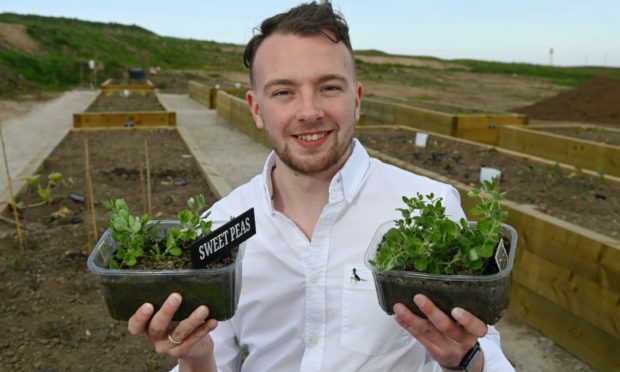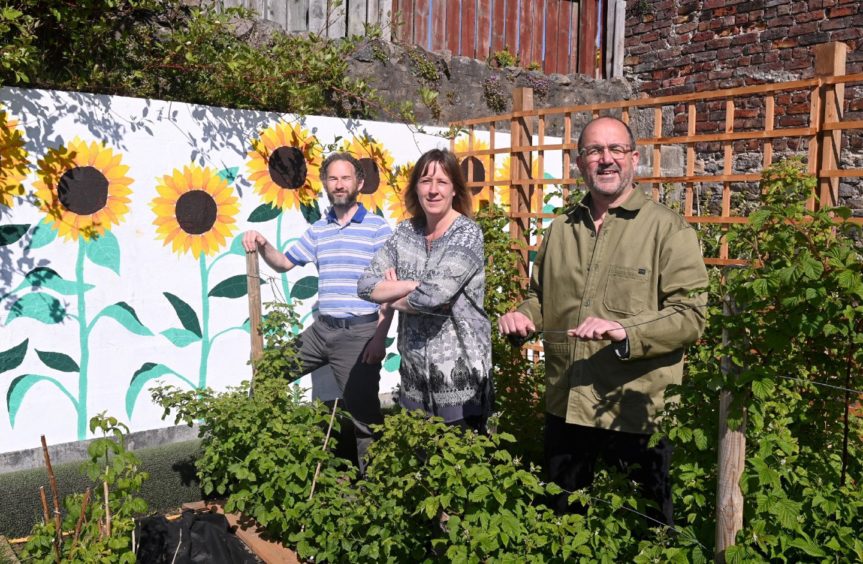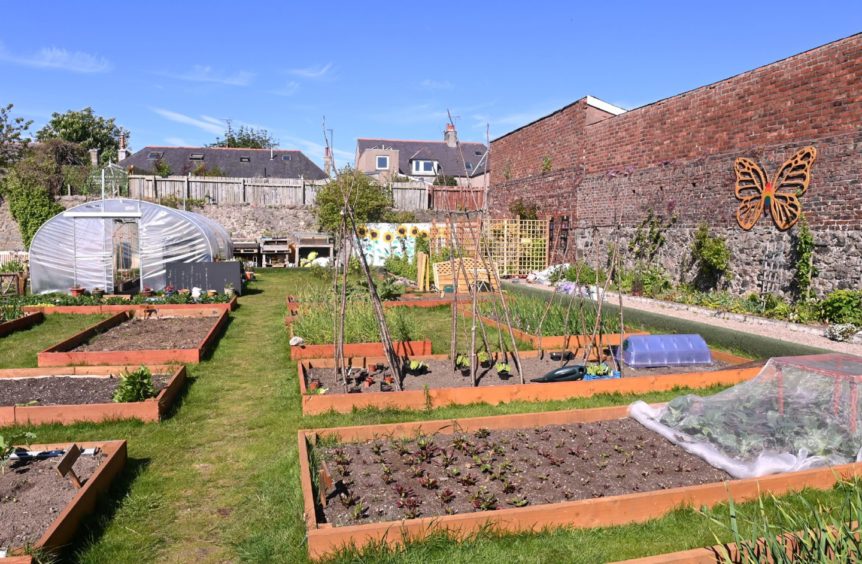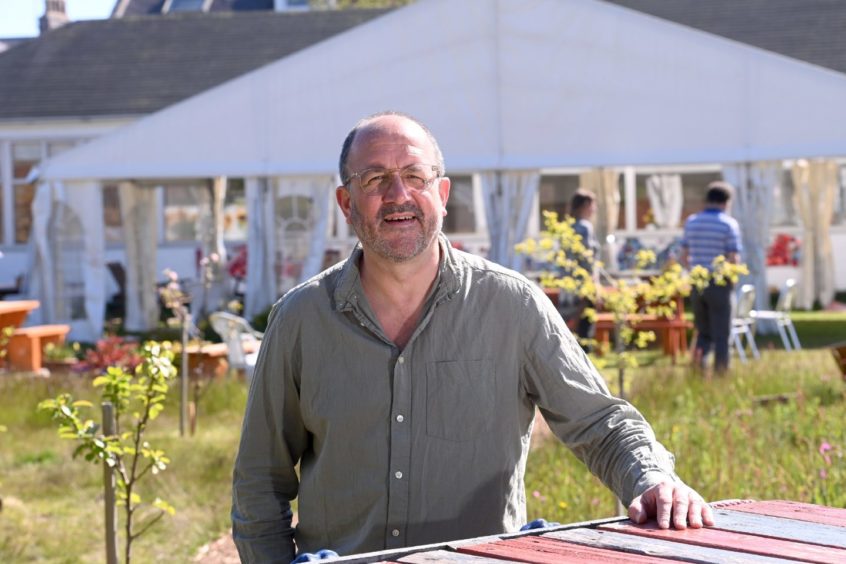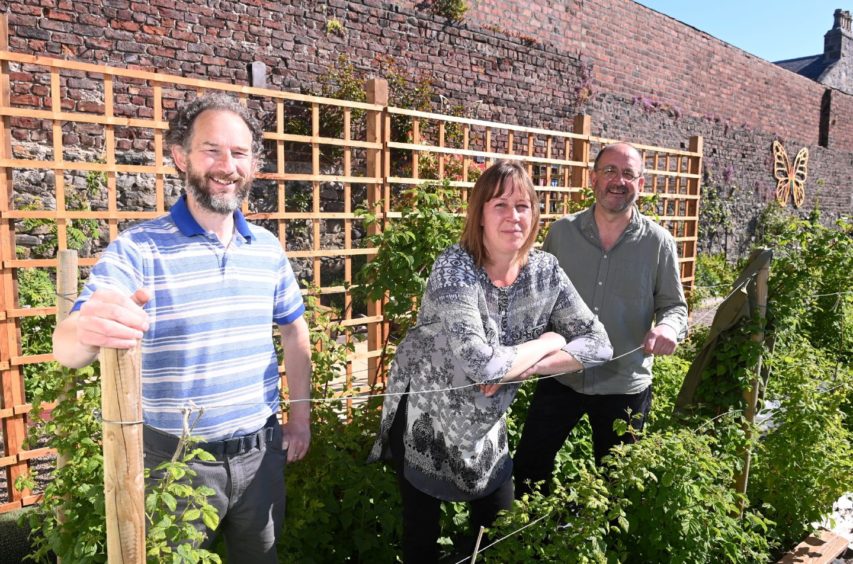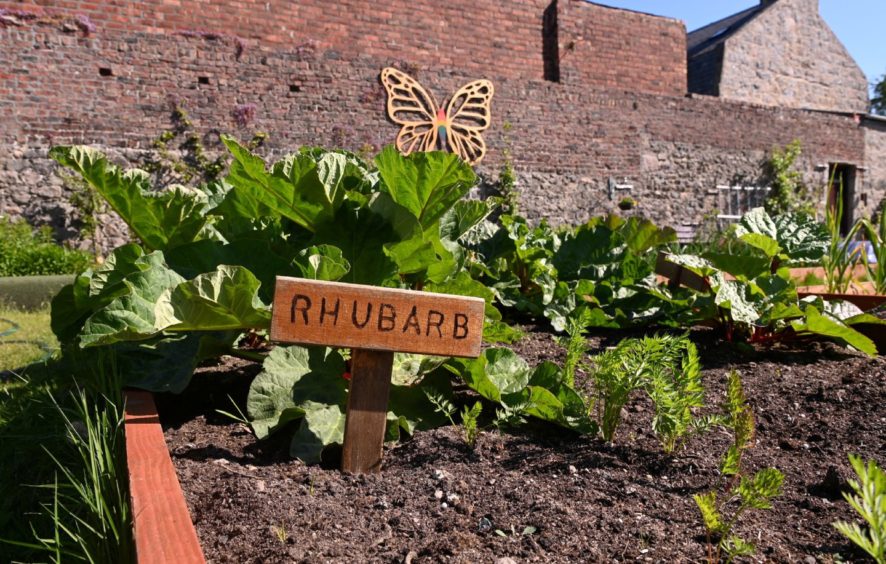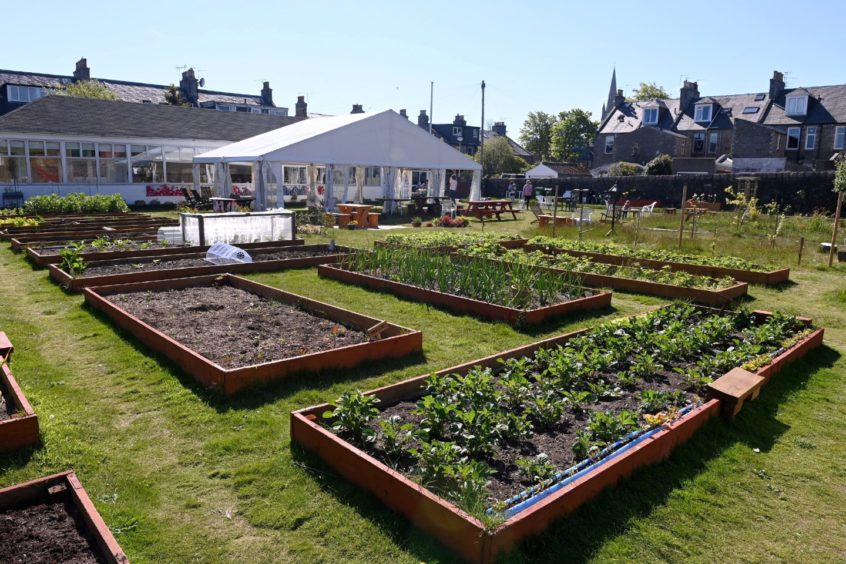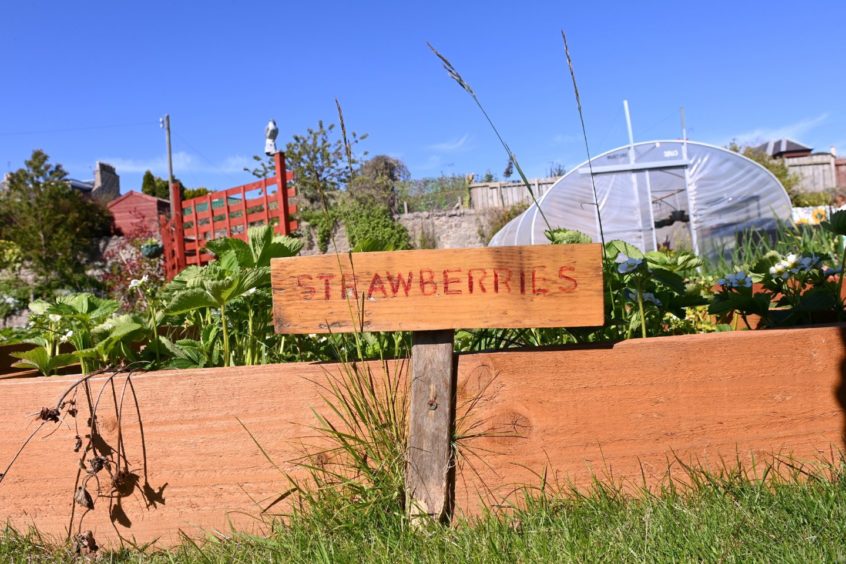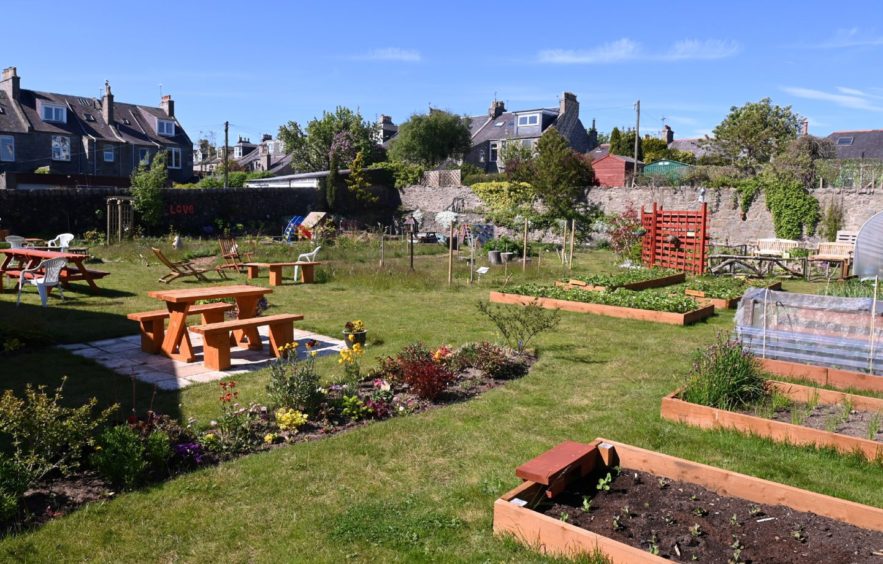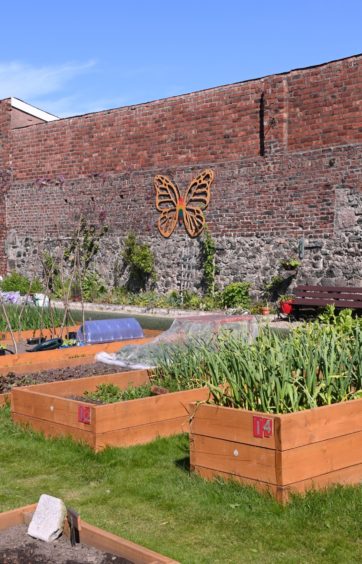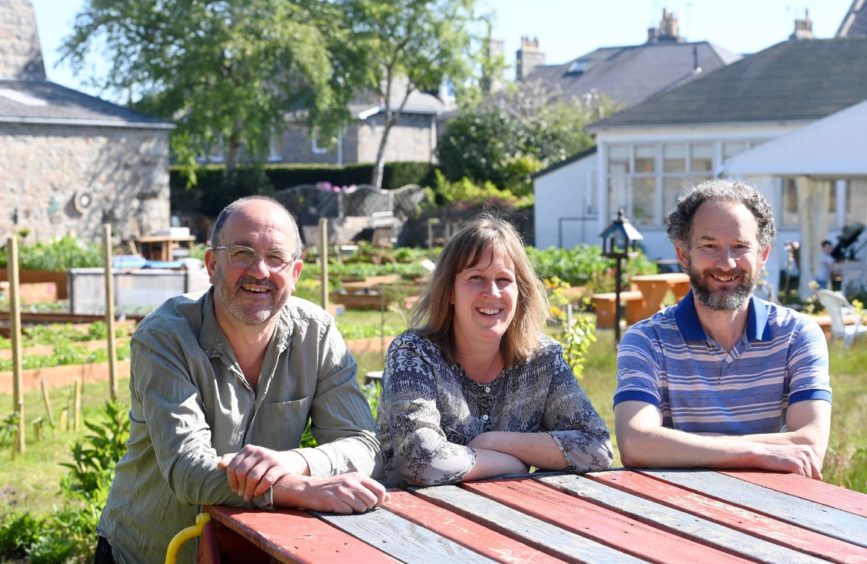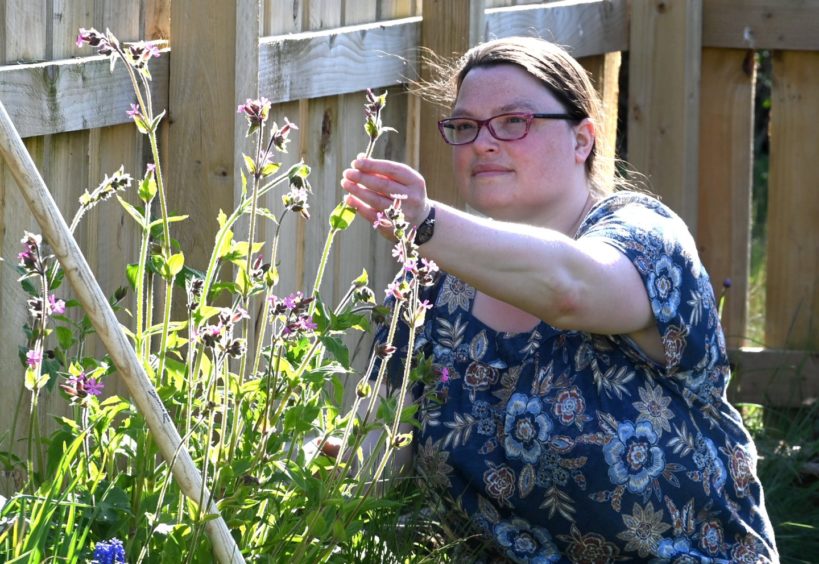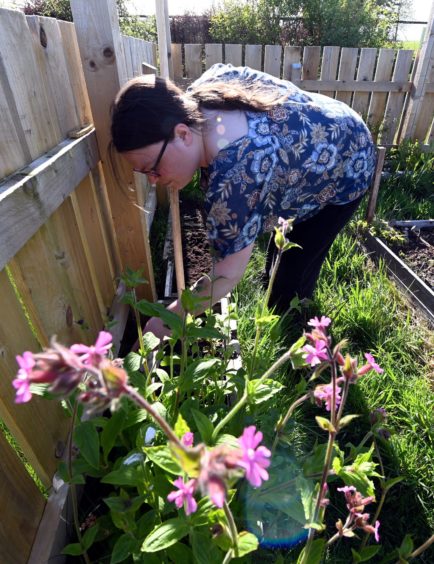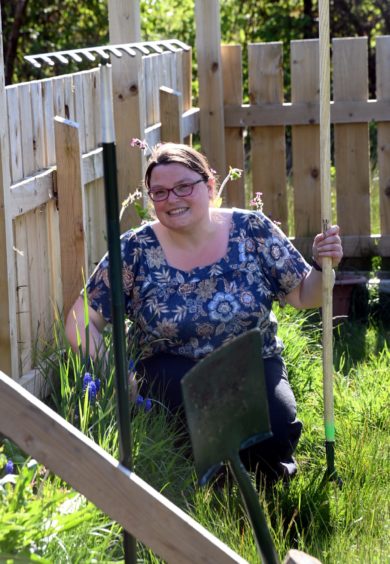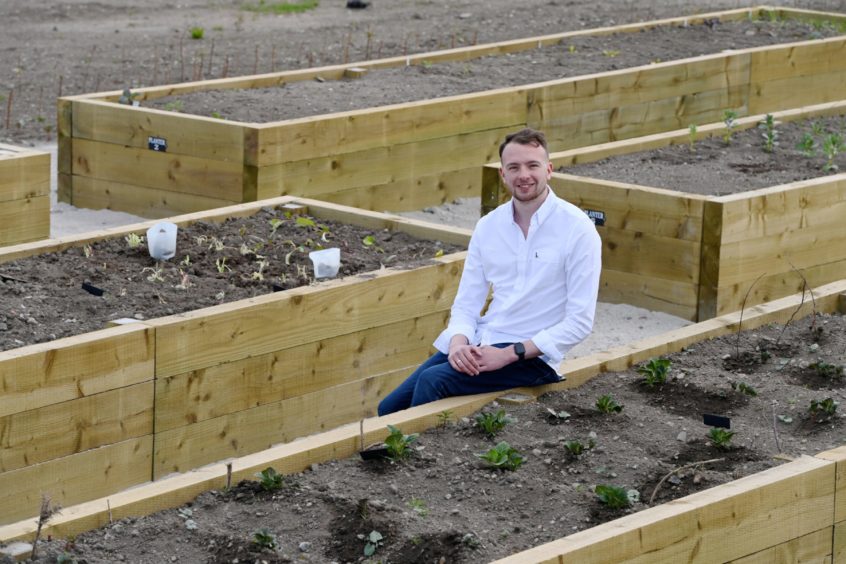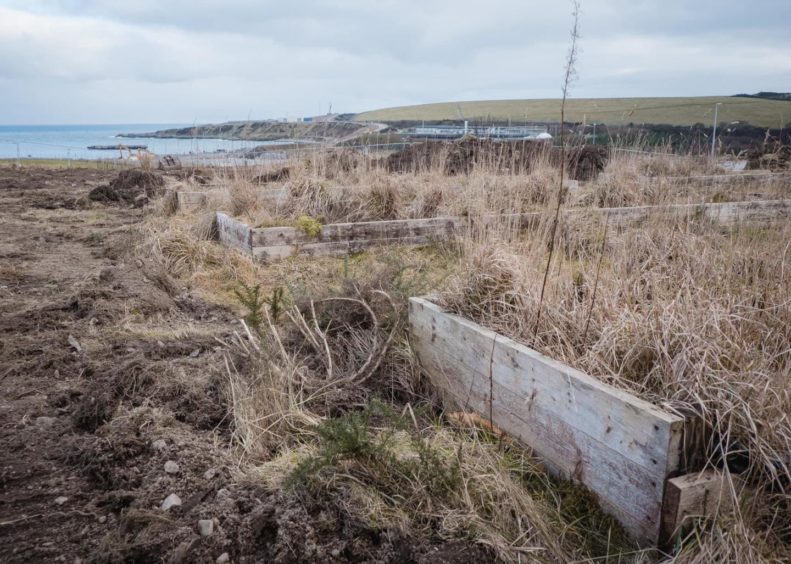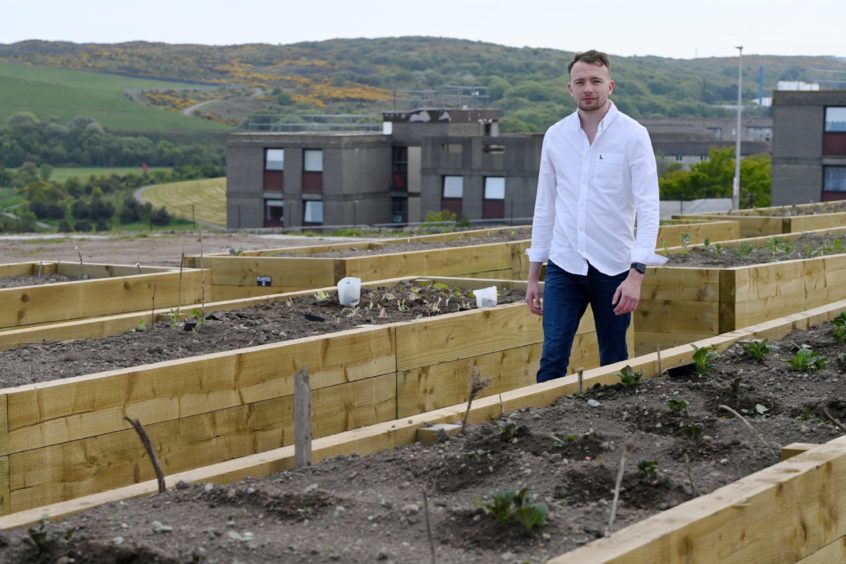To describe Bonnymuir Green as a garden deeply rooted in community spirit would be an understatement.
For the thriving walled garden, vibrant community space and weekend cafe in the Midstocket area of Aberdeen, is a truly remarkable feat of community empowerment, passion and perseverance.
Saved by the community for the community, an enthusiastic army of volunteers have worked tirelessly to transform what was once a derelict bowling green into a horticultural haven for everyone.
From growing fruit and vegetables and relaxing with a cuppa in the cafe, to taking some “me time” at the yoga or pilates classes or browsing through the book shop, Bonnymuir Green is so much more than a community garden.
It has been a lifeline for people of all ages, never more so than during the pandemic.
Indeed community gardens have sprung up across the country in recent years, but it has perhaps taken lockdown to highlight their importance.
These fabulous slithers of green can be found in the most extraordinary of places, and have also taken root in areas of deprivation.
If you live in a high-rise flat in Aberdeen, or only have access to a shared drying green, a community garden becomes a place to get your hands dirty, to truly revel in outside space.
From Springhill Community Garden which is tucked away at Sheddocksley playing fields, bordered by Mastrick and Northfield, to St Fitticks’ Edible Garden in the heart of Torry, there is something incredibly hopeful about new life blooming.
From the environmental aspect to mental health benefits, community gardens have already been making a huge difference.
Your Life spoke to dedicated volunteers behind projects in the north-east to find out more.
Power of community
“It’s a special place,” said John Wigglesworth, the chairman of Bonnymuir Green Community Trust.
“What has made the green is the volunteers who got involved with the garden; there’s too many to name. The green is all about the volunteers and the community.”
Bonnymuir Green’s extraordinary journey from derelict land to a blossoming beacon of hope started back in 2014, when a sudden silence descended across the bowling green.
Sensing that change was in the air, families living nearby started to ask questions and to their dismay, they discovered that the bowling green had closed its doors with developers primed to take over the site.
With the blessing of the local community and a collective fire in their bellies, a small group of volunteers embarked on a mission to protect the beloved green and return it to its former glory as a beautiful walled garden for everyone to enjoy.
“We had a town hall meeting which was great, as we had 60 or so people turn up as well as local politicians,” said John.
“It was really to find out if the community wanted to work towards saving this for the community and the overwhelming answer was yes.”
For the next three years, this small but mighty group of volunteers put their heart and soul into saving the green, setting up the Bonnymuir Green Community Trust to take their ambitious plans forward.
Perseverance paid off as in September 2018, the trust made legal history by becoming the first organisation in the north-east to successfully buy private land since the Scottish Government introduced the community buy-out legislation in 2015.
“We pushed on with it and we managed to raise the funding through Scottish Land Fund, and the best day happened in September 2018 when we got the keys to a very derelict bowling green,” said John.
Unlocking the gates to the overgrown bowling green, the volunteers were under no illusion at the huge task that lay ahead – but were buoyed as the community rallied round to help.
“From day one, volunteers and the community came along to help,” said John.
“We had people who shifted thousands of tonnes of compost and helped to get the building refurbed.
Homegrown produce
“Then we worked through developing our community growing plan and developed key initiatives like ‘Pick Your Own Produce’.
“We also developed a kids’ play area and a community cafe. By the end of 2019 we had achieved all of the objectives of the grant from the Scottish Land Fund, which was to achieve over 250 members, have a range of services and to get a growing programme in place.”
The walled market garden, community space and cafe is positively blooming, with a 100-strong team of volunteers and a membership of over 400.
During the coronavirus pandemic, Bonnymuir Green has proved to be a lifeline for the local community with more visitors and volunteers than ever before.
Covid came along and we did have to shut for a while, but then we took a decision that our role was really to help the community get through Covid so we needed to open up in the safest way possible.”
“So we started initially opening up for one-hour slots for families or individuals to book to just have a space if they were isolated or they didn’t have gardens,” said John.
“That was very popular. So as lockdown reduced we opened up the cafe, we developed the garden with raised beds and disabled access and put in a wild flower patch and put more effort and range of stuff into our growing produce.
Looking back on it, what happened in 2020 was that we
had more people than we had in the whole of 2019 and
that has continued even more.”
With its dedicated team of volunteers and stellar support from the community, Bonnymuir Green continues to grow and blossom into the green gem in the crown of Midstocket.
There is no denying that the green is a major success story, but it does not take the shine off smaller projects which continue to thrive.
Access to green space
For mum-of-two Sharon Driver, a community garden was a chance to work in the outdoors, as she was limited to growing plants on her balcony in Mastrick.
There is a bit more space at Springhill Community Garden, where raspberry bushes have just been planted by eager volunteers.
Sharon, who juggles being chair of the group with her job as a teacher, is hopeful that the garden will continue to flourish.
“It has been three years since I first got involved, and it was actually the council who wanted to start community gardens,” she said.
“There was a chap connected to C-Fine [Community Food Initiatives North East] who had identified lots of sites, and he came along to the playgroup at Sheddocksley Baptist Church.
“My children were quite little at the time, but I knew I wanted to be involved. I liked the community aspect.
“We don’t have a garden of our own, and I went along to take a look at the proposed site.
I remember going to see the ground and imagining what it would be like.”
“It was the old bowling green, but hadn’t been used in 10 years or so. It was overgrown with bushes that birds had seeded.
“We wanted part of it to be used for growing things, then have an area for fruit.”
The plans have certainly come to fruition, and there is also hope for a wild flower area, filled with beautiful meadow flowers such as knapweed.
“There are five of us in the core group, and we all learn from each other,” said Sharon.
“We learn what works and what doesn’t. I’ve been really amazed by all the wildlife round here that you perhaps wouldn’t expect.
There’s hedgehogs, deer, foxes. I’m hoping that the garden will attract lots of insects.”
Sharon grew up on a farm in Orkney, and spent her childhood admiring creatures thanks to her father’s job.
“My dad is a lepidopterist, meaning he’s a moth expert,” she said.
“It wouldn’t be unusual to find a jar of moths in the fridge; I think I get my love of insects from him.
“We’re hoping to have a bee hive, although that’s a long way in the future.”
Sharon believes that one of the greatest challenges is getting people to come along in the first place though.
“So we had a lot of interest on our Facebook page, and people saying they wanted to be involved,” she said. “But it’s actually getting them to come along.
“We have a whole mix of ages, and you don’t need to be an expert at gardening.
“People can take a look at our Facebook page, and honestly just turn up.”
Age need not be a barrier when it comes to feeling the soil squidge between your fingers, as proven by 23-year-old George Bellamy.
The former Aberdeen University student is chairman of Cultivate Aberdeen, having founded the initiative in 2018.
George identified a real need for Aberdeen to have a dedicated organisation supporting food-growing in the city, and is on a mission to empower the north-east to think differently about food.
Sustainable future
Sustainability is the order of the day and there are numerous projects on the go, from an edible garden in the former St Fitticks’ Council Depot at Torry, to the launch of Hilton Heritage Garden – which will explore the city’s link to food rationing during the Second World War.
“The vision was two fold,” said George.
“Back in 2018, community gardens were quite a new concept. There were pockets of them in Aberdeen, but they needed structure to make them sustainable for the long term.
“We needed something which was more organic with a community feel, that didn’t have the same prescription as allotments – which very much have a place here.
“The other concept was food. Food is a universal language.
We all share meals, both in the good times and the bad.”
“What starts off as growing tatties on a Saturday can be an enabler for mental health, wellbeing, education and sustainability.”
The organisation now has around 100 volunteers, and is funded by various grants, including from The National Lottery.
Mental health issues to be overcome
George’s vision is all the more remarkable, considering he had no prior gardening experience.
“It didn’t go beyond house plants; all you need is space for the experience to happen,” he said.
“We have just completed phase one of St Fitticks’. It used to be a farm building in the Sixties, before becoming the council depot.
“There was actually a community garden here before, but it fell by the wayside.
“It was started in 2011 by Aberdeen Forward, which has now merged with C-Fine.
“The concept was run with RGU, where people who had served a prison sentence could transition back into society having spent so long in a closed environment.
“We picked up the project and now we have completed phase one.”
Volunteers cleared the site, which involved removing debris from substance misuse.
“Torry is in the top 10% of the most deprived areas in Aberdeen,” said George.
“Community gardens can play a huge part in counteracting that.
“If you make space for gardens, food can be free and accessible.
Torry is a very proud community which has received a bad press. There is a new vision which is very community driven.”
“You only need to look at the Greyhope Bay project.
“The people here want to have a sense of ownership.”
The garden has already been made accessible with a pathway for both vehicles and wheelchairs – with plans for open days in the future.
Volunteers have recently installed nine raised planters, and small groups visit the site twice a week.
“I’ve had various sufferings with my mental health, and the Scottish Government has a really good phrase,” said George.
Medication has its place, but you can start off with prescribing the natural health service.”
“That means being outdoors, and making connections with people to tackle isolation and social conditions.
“Anyone can get involved, this is by the community for the community.”
You can find out more via the Cultivate Aberdeen website, or through Facebook and Instagram.
